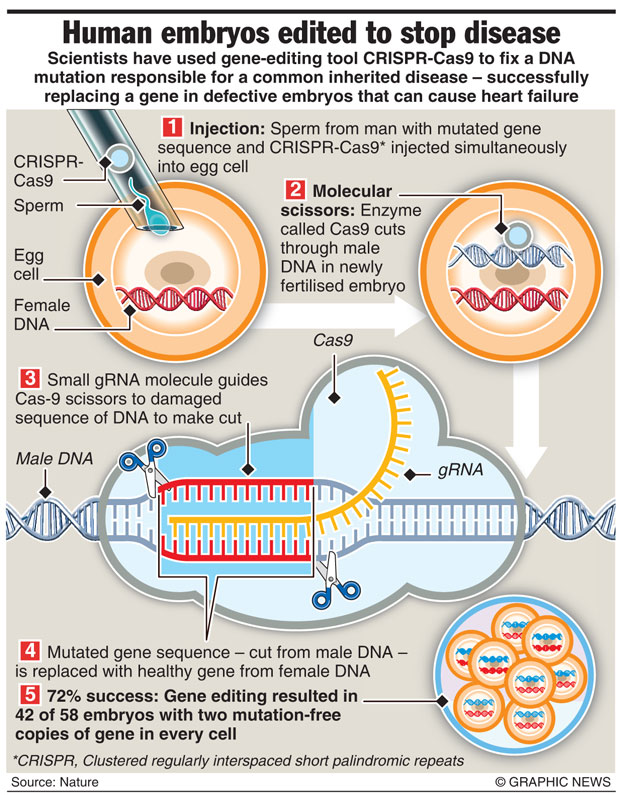14 Aug 2017 - {{hitsCtrl.values.hits}}

Scientists have used gene-editing tool CRISPR-Cas9 to fix a DNA mutation responsible for a common inherited disease -- successfully replacing a gene in defective embryos that can cause
heart failure.
The researchers targeted a mutation in a gene called MYBPC3. Such mutations cause the heart muscle to thicken -- a condition known as hypertrophic cardiomyopathy that is the leading cause of sudden death in young athletes. The mutation is dominant, meaning if one parent has a mutated copy, there is a 50 percent chance of passing the disease to children.
The study, published in the journal Nature, used sperm from a man with hypertrophic cardiomyopathy and eggs from 12 healthy women, from which the researchers created fertilised eggs. By injecting CRISPR-Cas9, which works as genetic scissors, they were able to snip out the mutated DNA sequence of the male MYBPC3 gene.
The male gene then copied the perfect sequence from the female gene. Out of 58 embryos, 42 emerged mutation-free. The method was not perfect, however, as the remaining 16 embryos had unwanted additions or deletions of DNA.
Potentially, CRISPR gene editing could apply to any of more than 10,000 conditions caused by inherited mutations -- including breast and ovarian cancer linked to BRCA mutations, as well as diseases like Huntington’s, Tay-Sachs, beta thalassemia, and even sickle cell anaemia, cystic fibrosis or some cases of early-onset Alzheimer’s. -August 3, 2017
23 Dec 2024 2 hours ago
23 Dec 2024 3 hours ago
23 Dec 2024 6 hours ago
23 Dec 2024 7 hours ago